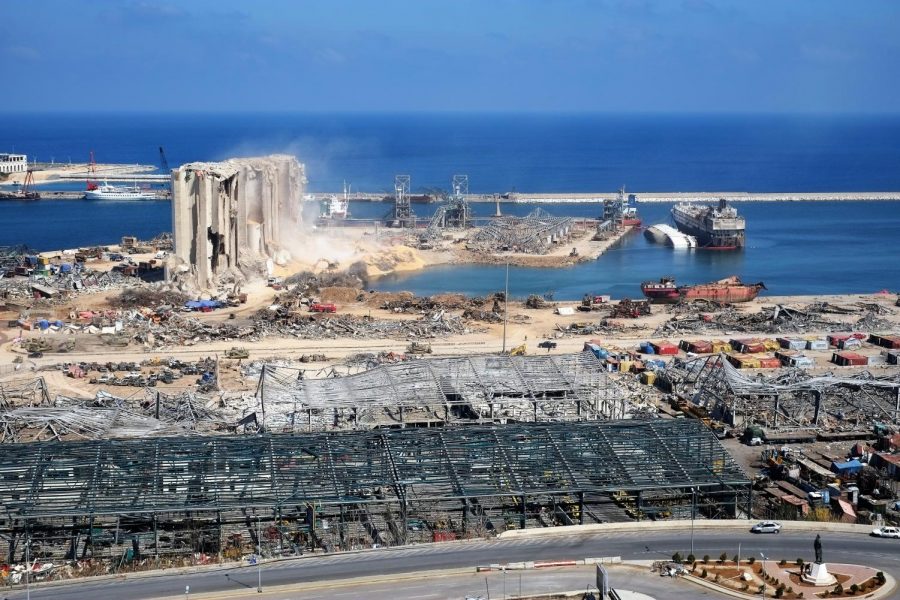Lebanon Explosion Kills Hundreds and Wounds Thousands
September 3, 2020
August 4, East Beirut, Lebanon. A massive explosion rocked the Port of Beirut, the result of an accidental fire that ignited nearly 2,800 tons of ammonium nitrate stored in a waterfront warehouse. 190 people were confirmed dead, and more than 6,500 injuries were reported.
The explosion sent a giant mushroom cloud into the sky and sent out a shockwave that caused a 3.3 magnitude earthquake according to the United States Geological Survey. It damaged roads, homes, hospitals, and other buildings, and shattered windows as far as 12 miles away. Government officials are estimating over $15 billion dollars in damages.
“It was a real horror show. I haven’t seen anything like that since the days of the [civil] war,” Marwan Ramadan, a Beirut resident, told the UK’s Daily Mail.
The 2,750 tons of ammonium nitrate, equivalent to 1,800 tons of TNT, was originally confiscated from a Russian owned ship that went bankrupt and was abandoned in the harbor in 2014. The cargo had originally been destined for a mining company in Mozambique, Africa.
“The blast started as small explosions like firecrackers,” port worker Charbel Haj said, referring to a nearby stash of fireworks, believed to be the cause of the second, much larger explosion
Lebanesse Army helicopters helped put out fires at the port, and the Red Cross reported to CNN that they had diverted every available ambulance from North Lebanon, Bekaa and South Lebanon. St. George University Hospital, one of the largest medical centers in Beirut, was badly damaged by the blast and lost power. A near by parking lot served as an area to treat casualties.
“People are on the streets, cleaning up and reconnecting with and supporting loved ones after surviving the blast,” World Vision’s national director for Lebanon, Hans Bederski said via a World Vision press release. “Hospitals that were already under pressure dealing with COVID-19 patients are now also inundated with people severely injured by the blast. Understandably, people are doing what needs to be done, but the aftermath has created the perfect storm to increase the risk of the virus spreading,”
“The U.S. stands ready to assist Lebanon,” President Donald Trump said via Twitter. U.S. Secretary of State Mike Pompeo also used the social media plattform to extend his condolences.
Lebanesse authorities are concerned that the badly damaged port, which is the largest maritime gateway in the country, will not be able to receive crucial supplies. Lebanon was already in a financial and economic crisis and now has to contend with more than 300,000 homeless as a result of the explosion, in addition to the billions of dollars in cleanup and reconstruction.


















